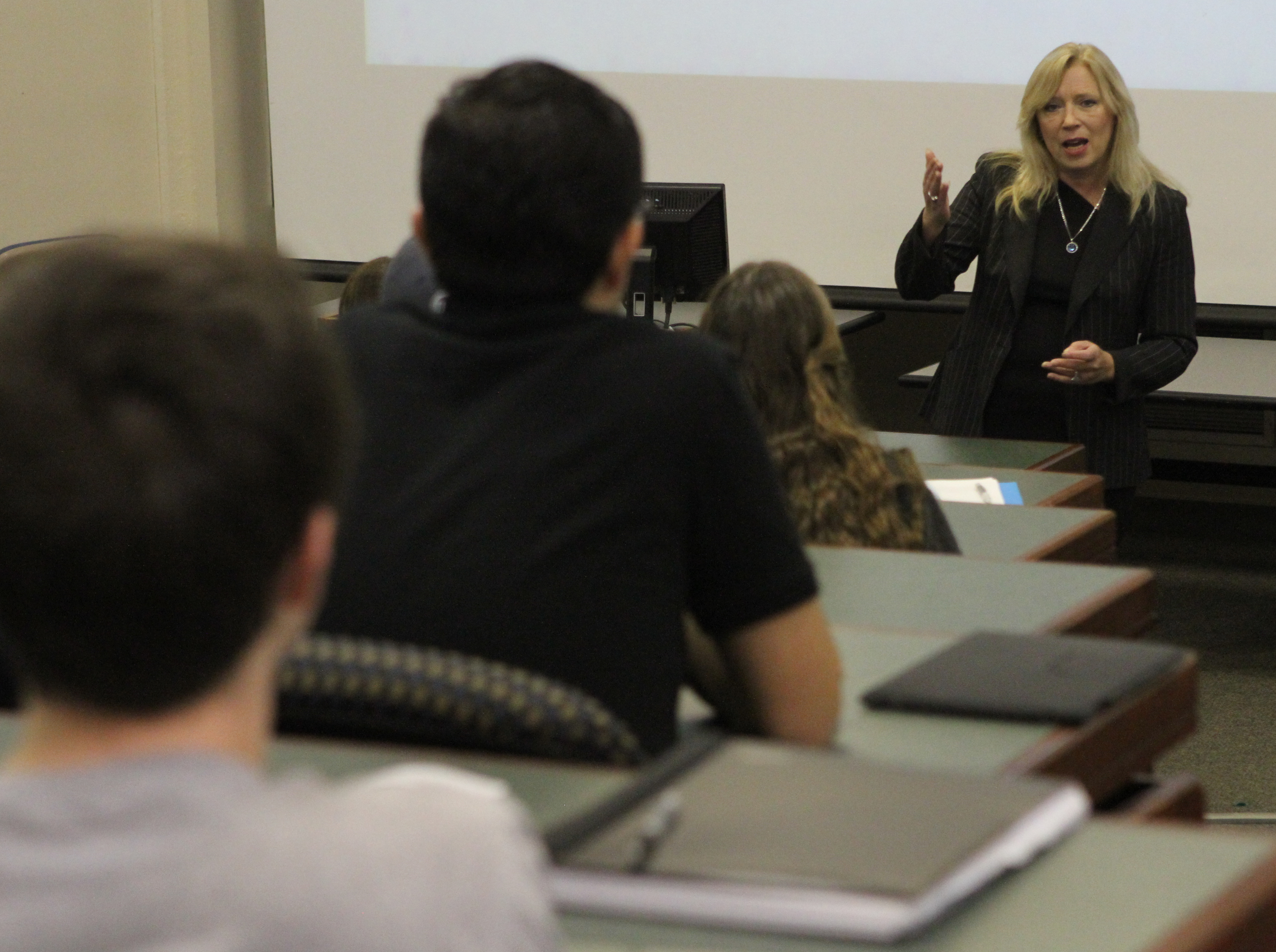Iveta Radicova loves the Statue of Liberty, but she thinks its iconic torch should be replaced with a new American icon - a giant credit card.
Radicova, the former prime minister of Slovakia, gave a guest lecture Tuesday morning at the University of Tennessee at Chattanooga as part of the Decosimo Lecture Series. The 56-year-old European leader made headlines for being the only European Union representative that refused to provide aid for Greece when the troubled country went bankrupt for the fifth time in 2012.
She may have retired from politics in April 2012, but Slovakia's first female professor of sociology refuses to be a lame duck. On Tuesday, she compared the complexities of the American and European markets to a class of UTC's next economists in hopes they can address future debt and market issues based on previous failures.
She reimagined the Statue of Liberty - America's most recognized symbol of freedom - as a metaphor for its financial difficulties.
"My voyage to the United States began in New York. I liked it. But the fire - it should be a credit card," she said. "Then it's precise. The basis for our life is on credit, and we are living from the sources of our children - the next generation."
Radicova's steadfast approach to solving debt isn't so much about decreasing the deficit number, as England has maintained a debt triple its ability since World War II, but rather by holding bankers and politicians accountable when they mislead consumers. She insisted that those responsible for tremendous economic downfalls, like the Lehman Brothers' collapse in 2007, should be thrown in jail as a deterrent for repeating these events in the future.
Specifically, Radicova blames rating agencies for providing false assurance and arbitrary labels of credit markets for the misleading downfall of Greece, which went bankrupt two months after receiving an "AA+" rating. In regards to microeconomics, she is a vast opponent of bank sector credit irresponsibility and quick-lending services.
"I have a right to speak so strongly because in Slovakia, we had a bankruptcy of the bank system in 1999," she said. "Recovery of the bank system cost us 12 percent of GDP. It was very painful."
Bruce Hutchinson, UTC economics professor, hopes his students consider experiences from the international market when they base their opinions on domestic money issues.
"I hope my students learn to take home the message that it's not just the United States, but a world of different views," he said. "I want them to look around at the world and realize there's a lot more going on."
As a global leader who started at the higher education level, Radicova said she places faith in individual teachers - more than any current banker, politician or investor - to inspire the next generation of learners and economic citizens.
"There is no direct correlation between spending the money on education and the result of education," she said. "The quality of education is based entirely on the quality of your lectures and teachers. Believe in them."
Contact staff writer Jeff LaFave at jlafave@timesfreepress.com or 423-757-6592.

